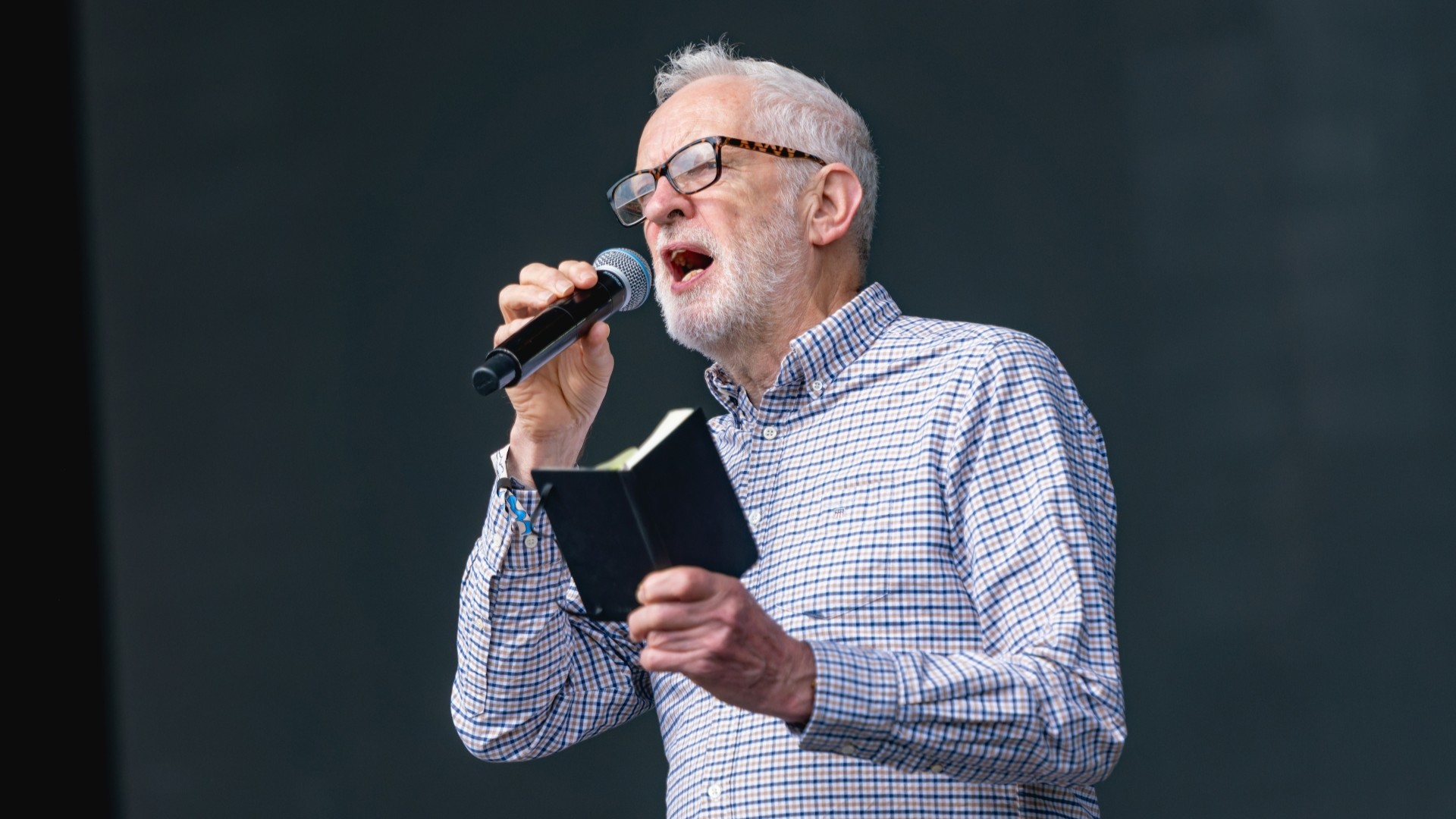The Return of Corbyn
Photo by Raph_PH
At an anti-war demonstration in London last month, attended by tens of thousands but barely mentioned by the British press, the former Labour Party leader, Jeremy Corbyn, was invited to the podium to address the crowd. The atmosphere, in an instant, turned giddy. People had been waiting for him, and while this was, first and foremost, a protest against Israel’s genocide in Gaza and its then ongoing assault on Iran, the crowd, palpably, was thrilled by his presence. Some of the more eager attendees edged closer to the front, as shorter people raised themselves up on tippy-toes and extended their necks, endeavoring to catch a glimpse of this now 76-year-old parliamentarian. England doesn’t really produce rock stars anymore, but, for a certain type of person—a non-property-owning English millennial, basically—Corbyn decidedly is one.
Corbyn is an unlikely subject for a cult of personality. He is a mild-mannered man, a touch peculiar, but fundamentally just a decent person with principles that he tends to stick to—which marks him as a wild aberration within British politics. It means he is despised by right-wingers and centrists both, while many on the left, with so few public figures to look to for leadership, revere him as a sort of icon. Through a bizarre collision of coincidence, historical circumstance, and his own understated, almost-but-not-quite-eccentric charm, Corbyn is perhaps the only person capable of mobilizing the country’s battered and confused left-wing, even today, nearly six years after his and their inglorious electoral defeat. It is why he is going to be so important in establishing a new British party of the left, which, finally, is officially going to happen.
News of the as-yet unnamed party’s founding was announced at the start of July, and, as is fitting for a fledgling left-wing organization, it was broken in a manner that bordered on the calamitous. Rumors had been swirling of a new left-wing party for some time, but the actual statement of intent came abruptly, catching everyone—including, it seems, Corbyn himself—by surprise. Zarah Sultana, who, until recently, was a Labour MP, was the person to deliver the news, tweeting, “Today, after 14 years, I’m resigning from the Labour Party. Jeremy Corbyn and I will co-lead the founding of a new party, with other Independent MPs, campaigners and activists across the country. Join us. The time is now.”
-

-

-

-

-

-

-

-

-

-

-

-

-

-

-

-

-

-

-

-

-

-

-

-

-

-

-

-

-

-

-

-

-

-

-

-

-

-

-

-

-

-

-

-

-

-

-

-

-

-

-

-

-

-

-

-

-

-

-

-

-

-

-

-

-

-

-

-

-

-

-

-

-

-

-

-

-

-

-

-

-

-

-

-

-

-

-

-

-

-

-

-

-

-

-

-

-

-

-

-

-

-

-

-

-

-

-

-












































































































